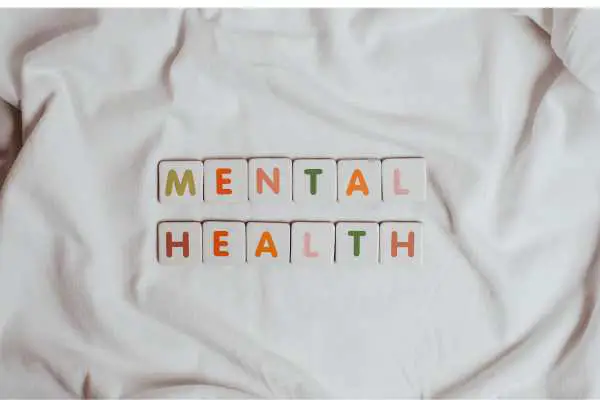Hey there, my fellow mental health enthusiasts! Are you feeling a little down or anxious lately? Well, don’t worry, because today we’re going to talk about the wonderful benefits of meditation for mental health.
Let’s face it, life can be tough and overwhelming at times, and our mental health can take a hit. In fact, mental health issues have become more and more prevalent in our modern society.
That’s why it’s important to take care of ourselves, not just physically, but mentally too.
Now, you might be wondering, how can meditation help?
Well, my friend, meditation has been proven to be a powerful tool in promoting mental health. And the best part? It’s completely free, and you can do it anywhere.
So, sit back, relax, and let’s dive into the amazing benefits of meditation for your mental health. Trust me, by the end of this article, you’ll be a meditation convert!

What is Meditation?
All right, let’s get into the nitty-gritty of meditation. What is it exactly? Well, meditation is a practice that involves training your mind to focus and be present at the moment.
The purpose of meditation is to quiet your mind and reduce distractions, so you can develop a sense of inner peace and calm. It’s been around for thousands of years and is rooted in ancient spiritual practices from around the world.
There are many different types of meditation, each with its own unique benefits.
Some of the most popular types include mindfulness meditation, loving-kindness meditation, and body scan meditation.
Mindfulness meditation involves paying attention to your thoughts and sensations without judgment.
Loving-kindness meditation involves cultivating feelings of love and compassion towards yourself and others.
Body scan meditation involves scanning your body for any sensations or areas of tension.
No matter what type of meditation you choose, the benefits are vast. From reducing stress and anxiety to improving focus and concentration, meditation can truly transform your mental state for the better. So, give it a try and see how it can benefit you!
Understanding the Science Behind How Meditation Affects the Brain
Have you ever wondered how sitting in silence with your eyes closed can actually have a positive impact on your brain? Well, wonder no more! Let’s take a deep dive into the science behind how meditation affects the brain.
First things first, studies have shown that meditation can increase the amount of gray matter in the brain. Gray matter is responsible for many important functions such as muscle control, sensory perception, and memory.
By increasing the amount of gray matter in the brain, meditation can enhance these functions and improve cognitive performance.
Meditation also has a significant impact on the prefrontal cortex, which is part of the brain responsible for executive function, decision-making, and emotional regulation. By strengthening the prefrontal cortex through meditation, individuals may experience improved decision-making abilities and better emotional control.
Additionally, meditation has been shown to enhance cognitive function by improving attention, memory, and processing speed. This means that regular meditation practice may help you become more productive, focused, and efficient in your daily life.
So, to sum it up, meditation is not just a fluffy practice for hippies – it has real, scientifically proven benefits for the brain. By increasing gray matter, strengthening the prefrontal cortex, and enhancing cognitive function, meditation can help you become a sharper, more focused, and overall happier person.
So, if you haven’t already, it might be time to start incorporating meditation into your daily routine!

The Benefits of Meditation for Mental Health
Meditation has been shown to provide numerous benefits for mental health. Here are some of the most notable benefits:
1. Reduces symptoms of anxiety and depression
Meditation has been found to be effective in reducing symptoms of anxiety and depression. Studies have shown that regular meditation practice can lead to decreased levels of stress hormones, improved mood, and increased feelings of well-being.
2. Lowers stress levels
Stress can have a negative impact on both mental and physical health. Meditation has been found to be an effective tool for reducing stress levels. It can help individuals to develop greater resilience in the face of stress, and also increase their ability to cope with stressful situations.
3. Enhances emotional regulation
Meditation can help individuals develop greater awareness of their thoughts and emotions, which can lead to better emotional regulation. This can be particularly beneficial for individuals who struggle with mood swings or intense emotional reactions.
4. Improves sleep
Meditation can be an effective tool for improving sleep quality. Studies have shown that regular meditation practice can help individuals fall asleep more quickly, stay asleep longer, and wake up feeling more rested.
One of the most notable benefits of meditation for mental health is its ability to reduce symptoms of anxiety and depression.
Research has shown that regular meditation practice can lead to decreased levels of stress hormones, which can help to alleviate symptoms of anxiety and depression.
Additionally, meditation can increase feelings of well-being and improve mood.
One study found that individuals who participated in an eight-week mindfulness-based stress reduction program experienced a significant reduction in symptoms of anxiety and depression.
Another study found that individuals who practiced loving-kindness meditation experienced decreased symptoms of depression and increased feelings of positive emotion.
Overall, the benefits of meditation for mental health are numerous and well-documented. Whether you are looking to reduce stress, improve emotional regulation, or enhance sleep quality, meditation can be an effective tool for promoting overall well-being.
The Impact of Meditation on Reducing Symptoms of Depression
Depression is a common mental health disorder that affects millions of people worldwide. While medication and therapy can be effective treatments, many individuals may also benefit from incorporating meditation into their self-care routine.
Research has shown that meditation can be a helpful tool for reducing symptoms of depression.
Here are some of the benefits of meditation for individuals struggling with depression:
- Reduced Symptoms of Depression
Studies have shown that regular meditation can help reduce symptoms of depression, such as feelings of sadness, hopelessness, and lack of energy.
Meditation can also help individuals develop a greater sense of self-awareness and self-compassion, which can be particularly helpful for individuals with depression.
- Increased Resilience:
Depression can often leave individuals feeling helpless and powerless. Through regular meditation practice, individuals can develop greater resilience and the ability to bounce back from difficult situations.
Meditation can also help individuals develop a greater sense of control over their thoughts and emotions, which can be particularly helpful for individuals struggling with depression.
- Enhanced Emotional Regulation:
Depression can often leave individuals feeling overwhelmed by their emotions. Meditation can help individuals develop greater emotional regulation skills, which can be particularly helpful for individuals with depression.
Through meditation, individuals can learn to observe their thoughts and emotions without judgment, which can help them develop a greater sense of emotional control.
One example of how meditation can help reduce symptoms of depression is through the practice of loving-kindness meditation. This type of meditation involves sending loving-kindness and compassion to oneself and others.
By cultivating feelings of love and kindness, individuals can develop a greater sense of connection to themselves and others, which can be particularly helpful for individuals struggling with depression.
Overall, meditation can be a helpful tool for individuals struggling with depression. By reducing symptoms of depression, increasing resilience, and enhancing emotional regulation skills, meditation can help individuals develop greater overall well-being and improve their quality of life.

How Meditation Can Improve Your Mood and Increase Feelings of Happiness
Are you feeling blue? Are you looking for a way to boost your mood and feel happier? Look no further than meditation! Research has shown that meditation can have a positive impact on mood and can increase feelings of happiness and well-being.
Here are some of the benefits of meditation for improving mood:
- Reduces Negative Emotions
Meditation has been shown to reduce negative emotions such as anxiety, depression, and stress.
By taking time to focus on the present moment and letting go of negative thoughts, you can improve your mood and reduce feelings of sadness and hopelessness.
- Increases Positive Emotions
Not only does meditation reduce negative emotions, but it can also increase positive emotions such as joy, gratitude, and contentment.
By focusing on positive thoughts and emotions during meditation, you can cultivate a more positive outlook on life.
- Activates Pleasure Centers in the Brain
Meditation has been shown to activate the brain’s pleasure centers, which are responsible for feelings of happiness and well-being.
By regularly meditating, you can train your brain to experience more positive emotions and increase your overall sense of well-being.
One of the ways meditation can improve your mood is by reducing the activity in the amygdala, a part of the brain that is responsible for processing emotions such as fear and anxiety.
When the amygdala is overactive, it can lead to feelings of stress and anxiety. However, research has shown that regular meditation can reduce the activity in the amygdala, leading to a reduction in negative emotions.
Another way meditation can improve your mood is by increasing the activity in the prefrontal cortex, a part of the brain that is responsible for regulating emotions and controlling impulsive behavior.
By increasing the activity in the prefrontal cortex, meditation can help you better manage your emotions and make more rational decisions.
Overall, incorporating meditation into your daily routine can have a positive impact on your mood and increase feelings of happiness and well-being.
So, the next time you’re feeling down, try sitting down and meditating for a few minutes. You may be surprised at how much better you feel!
The Role of Mindfulness in Meditation and Mental Health
When it comes to meditation and mental health, mindfulness is a buzzword that is often used.
Mindfulness is defined as the act of paying attention to the present moment, without judgment. It’s a practice that can be incorporated into meditation, but it’s also something that can be done throughout the day.
The benefits of mindfulness for mental health are numerous.
For one, mindfulness can help reduce symptoms of anxiety and depression by promoting relaxation and reducing stress levels. It can also help individuals become more aware of their thoughts and emotions, which can be helpful in managing these experiences.
Mindfulness can also improve overall well-being by increasing feelings of gratitude, compassion, and empathy.
By becoming more mindful, individuals can better connect with their own emotions and the emotions of others, leading to deeper, more meaningful relationships.
Incorporating mindfulness into daily life can be as simple as taking a few moments to focus on your breath or your surroundings. It can also involve engaging in mindful activities such as yoga or journaling.
Overall, mindfulness is an important aspect of meditation and can be a powerful tool for promoting mental health and well-being

A Simple Guide to Meditating for Better Mental Health
Meditation may seem intimidating at first, but it doesn’t have to be. With a little guidance and practice, anyone can learn to meditate and reap the benefits for their mental health. Here is a simple guide to get you started:
- Find a quiet space
To meditate effectively, find a quiet space where you won’t be disturbed. It can be a spare room, a park, or even a corner of your bedroom.
- Get comfortable
Sit comfortably in a chair or cross-legged on the floor. Keep your back straight, but not rigid, and relax your shoulders.
- Focus on your breath
Close your eyes and take a few deep breaths. Then, simply focus on your breath as it goes in and out. You can count each inhales and exhales if it helps you stay focused.
- Don’t judge your thoughts
As you meditate, thoughts will inevitably come into your mind. Instead of trying to push them away, simply observe them without judgment and then gently bring your focus back to your breath.
- Start small
It’s important to start small and work your way up. Begin with just five minutes of meditation a day, then gradually increase the time as you become more comfortable.
- Be consistent
Consistency is key. Try to meditate at the same time every day, so it becomes a regular part of your routine.
- Use guided meditations:
If you’re having trouble getting started, try using guided meditations. There are plenty of apps and websites that offer free guided meditations, so find one that resonates with you and give it a try.
Remember, meditation is a practice, and like any practice, it takes time to develop.
Don’t get discouraged if you have trouble staying focused at first. With patience and consistency, you’ll start to notice the benefits for your mental health.
Conclusion
Congratulations, dear reader! You have made it to the end of this article, and hopefully, you have learned a thing or two about the power of meditation for mental health.
To recap, we have explored different types of meditation and the science behind how it affects the brain.
We have also discussed the various benefits of meditation, including its ability to reduce symptoms of anxiety and depression, improve focus and concentration, and increase feelings of happiness and well-being.
It’s important to remember that meditation is not a magic cure for mental health issues, and it should not be used as a replacement for professional treatment.
However, it can be a helpful tool to complement other treatments, such as therapy or medication, and to promote overall well-being.
Incorporating meditation into your self-care routine may seem daunting at first, but it doesn’t have to be. Start small, with just a few minutes a day, and gradually work your way up to longer sessions. Remember, the benefits of meditation are cumulative, so even a few minutes a day can make a difference.
If you find yourself struggling to maintain a regular meditation practice, don’t beat yourself up.
It’s normal to experience obstacles and setbacks, but with time and practice, you can overcome them. Be kind and compassionate to yourself, and remember that meditation is a journey, not a destination.
In conclusion, I encourage you to give meditation a try and see how it can positively impact your mental health and overall well-being. Remember to consult with a healthcare professional if you are experiencing any mental health issues or concerns. Thank you for reading, and happy meditating!

Frequently Asked Questions
Does meditation help with mental clarity?
Yes, meditation can help improve mental clarity. Regular meditation practice has been shown to enhance cognitive abilities, such as attention and focus, and reduce distracting and negative thoughts, which can lead to a clearer and more focused mind.
In addition, meditation can help reduce stress and anxiety, which can cloud the mind and affect cognitive function. By reducing stress and increasing relaxation, meditation can help promote mental clarity and improve overall cognitive performance.
Do I need to be religious or spiritual to meditate?
No, meditation can be practiced by people of any faith or no faith at all. It is a secular practice that can benefit anyone regardless of their religious or spiritual beliefs.
Does meditation help in studying?
Yes, meditation can be helpful in studying. Meditation helps to improve focus, concentration, and memory, which are essential for effective studying.
Regular meditation practice can help reduce stress and anxiety, which can be major distractions while studying.
Meditation also helps to improve cognitive flexibility, which allows individuals to switch between tasks and think more creatively.



